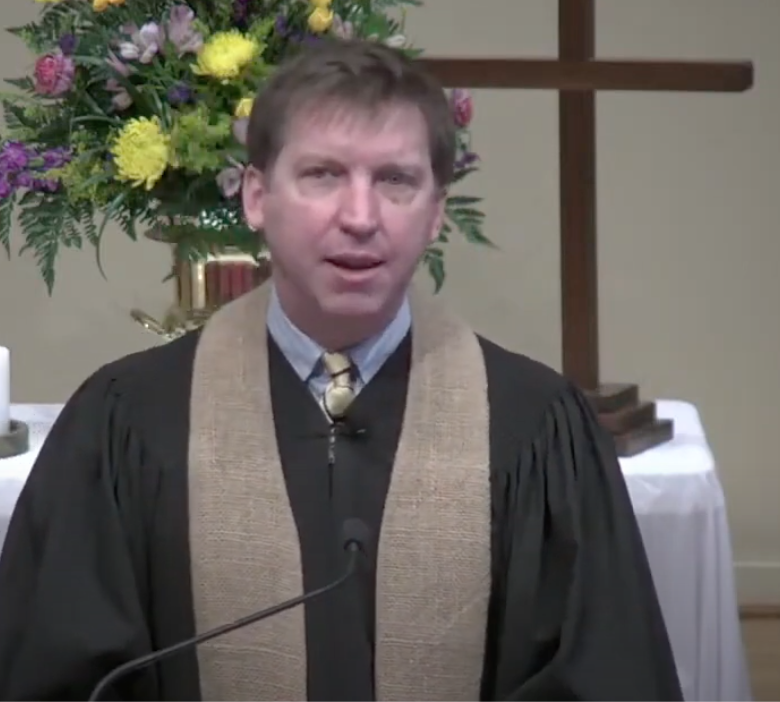Why may the majority of scholars be right, that the Bible is not a reliable book of history, although much of its historical sections are indeed based on actual events and real places in the larger picture?
It was never fully hidden but now, for sure, the tendency of religious institutions to quash doubt and keep it under wraps has succumbed to an end-around play. People can connect cross-country and around the world, and do so anonymously if they want! This is a big, big help to many. It is only one expression of a broad and accelerating shift in the way religion and spiritual life are viewed and practiced.
The battle for growth is not just conceptual or “spiritual.” It is also practical – monetary, social, interpersonal, etc. “Culture wars” and the growth boundaries they often represent, are not separate from practical issues like making a living and social relationships but are intertwined with them. It is similar with religious and other belief systems.
Second, both Albert's sought a grand theory. Einstein, a "theory of everything" or the "unified field theory" of physics; Schweitzer the common, most basic ethic for all cultures and humanity. He felt he had discovered it while pondering and traveling (at the key point of insight, on a river amid a herd of hippopotamuses at sunset. One is again reminded of Einstein's insights sometimes coming amid his imaginary "thought experiments"). The by-then double-doctor (PhD, MD), Schweitzer, reports he had been pondering and writing notes, "....struggling to find the elementary and universal concept of the ethical that I had not discovered in any philosophy..." Then, quite suddenly, "... there flashed upon my mind, unforeseen and unsought, the phrase : “Ehrfurcht vor dem Leben” [“Reverence for Life”]. The iron door had yielded. The path in the thicket had become visible.”
If the new "Papa Francisco" (has a nice ring, huh?) can inspire us all, Catholic or not, to greater dedication to the Gospel of Jesus he will have bolstered our faith (in God and/or humanity) and created a better world. (In this I think the non-religious can be included as well, if they are willing.... I'm not at all far from them myself.)
Paul endorsed the Roman status quo, politically. He made the real issue identification with a descended (divine) savior, spiritually raised and soon to return. The Jerusalem group shared the last point but emphatically not the first two of Jesus' divinity nor acquiescence to Roman rule. Their expected Messiah (dramatically shifted after his death to a returning one) would establish peace with Jewish centrality and abolish the MILITARY dominance of other kingdoms but not the existence of other nations.
I believe there is great value in gaining some understanding of the leading developmental stage theories, and particularly how they relate to one another. This can be valuable for use for oneself as well as it is, often highly so, for working with other people who may have less insight into themselves and less knowledge of either social science findings or spiritual development than you or other "people helpers" do.
Sadly, some people do stop thinking in terms of their growth except as it relates to occupational skills or promotions perhaps. But I think most people are quite aware of their need for ongoing growth throughout life. Are there, then, some meaningful markers to see how we are doing? Can such markers be used by scholars or “people helpers” who want to size up anyone from individuals to entire societies in terms of development?
The Pew Forum on Religion and Public Life has just released an interesting report on religious groups around the world. It is a compilation that
To me, one of the most problematic, psychologically damaging things about Evangelical theology is the focus on salvation... what constitutes it, how it is obtained and held onto, etc.
But the loss of their key center and probably the main leadership and overall strength of the movement opened the way for Pauline Christian influence which is clear particularly in Luke (both his Gospel and Acts).
The great dividing line for two religions and the relationship between them is the period of 66-70 CE, which ended in the destruction of both Jerusalem and the great "Second Temple". For Jews of the time this destroyed the political, economic and religious organization of Israel....
Now there are at least two major types of people who do take seriously what is said in the New Testament (NT), which I'm summarizing here as "the Gospel." Here are the two types, for our purposes in this very brief summary of NT understanding as it relates to who wrote the books...
There is a war going on which need not be fought. It is the conflict between the God of traditional Christian thought and the theoretical/factual assumptions of science. This is conceptual mortal combat. Young spiritual seekers are often the collateral damage.
It does mean that each gender should recognize that their opposite may have a naturally different way of perceiving and weighing things and not label it as either inferior or superior but as something to be understood and learned from. This, I believe, provides one of many good reasons for society and its institutions, including religions, to actively seek ways to include women at all levels of leadership and decision-making.
So in a round-about way, Gamaliel, as quoted by Luke, is giving us a powerful clue about what kind of literature the Gospels are — a unique mix of a few core historical events with lots of theological overlay, all blended with a good dose of the kinds of stories of miraculous signs that we know were common and sometimes persuasive in that day. And not surprisingly…. They still are today!
Today I want to add just a little to the last post and deal further with a fundamental issue, perhaps the fundamental issue about knowing God: Do we know God through things God chooses to say and demonstrate to us through selected messengers? Or do we know God through a vast array of messengers, not selected out individually by God and promoted by a religious community? Is this aided by our observation of the world - nature, people, spiritual phenomena and such?
God is persuasive love, containing but somehow still beyond all that we can grasp, and within whom “we live and move and have our being.”
Whatever paradigm a community may favor (or more than one among community members), the core of Christian faith and what Jesus emphasized — the centrality of love in action — can be the community emphasis as well.
The recent horrible shooting incident at a premier showing of “The Dark Knight Rises” in Colorado has focused attention, once again, on some aspects of what has gone wrong when a person takes such a violent and antisocial turn.
I've titled this as about the Resurrection, which is just one part of a complex of beliefs... but let's return and end there... What similarities or differences do you see in Paul's Resurrection statements and beliefs and those of the early Jerusalem Jesus-followers?
Basically, the Church was developing within a strongly partiarchal and heirarchical society.... Despite the freshness and hopefulness we see in Jesus and Paul, it is not surprising that male domination would soon assert itself and claim exclusive leadership privileges. Maybe women could lead among women, of course... no real complication or threat there.
1. We embrace the urgent task of clarifying what it means to follow a “spiritual path” or a “faith” that is Christian in some manner. With this, we know we must increase dialog and exploration between two often-warring camps divided as “conservative” and “liberal.”












